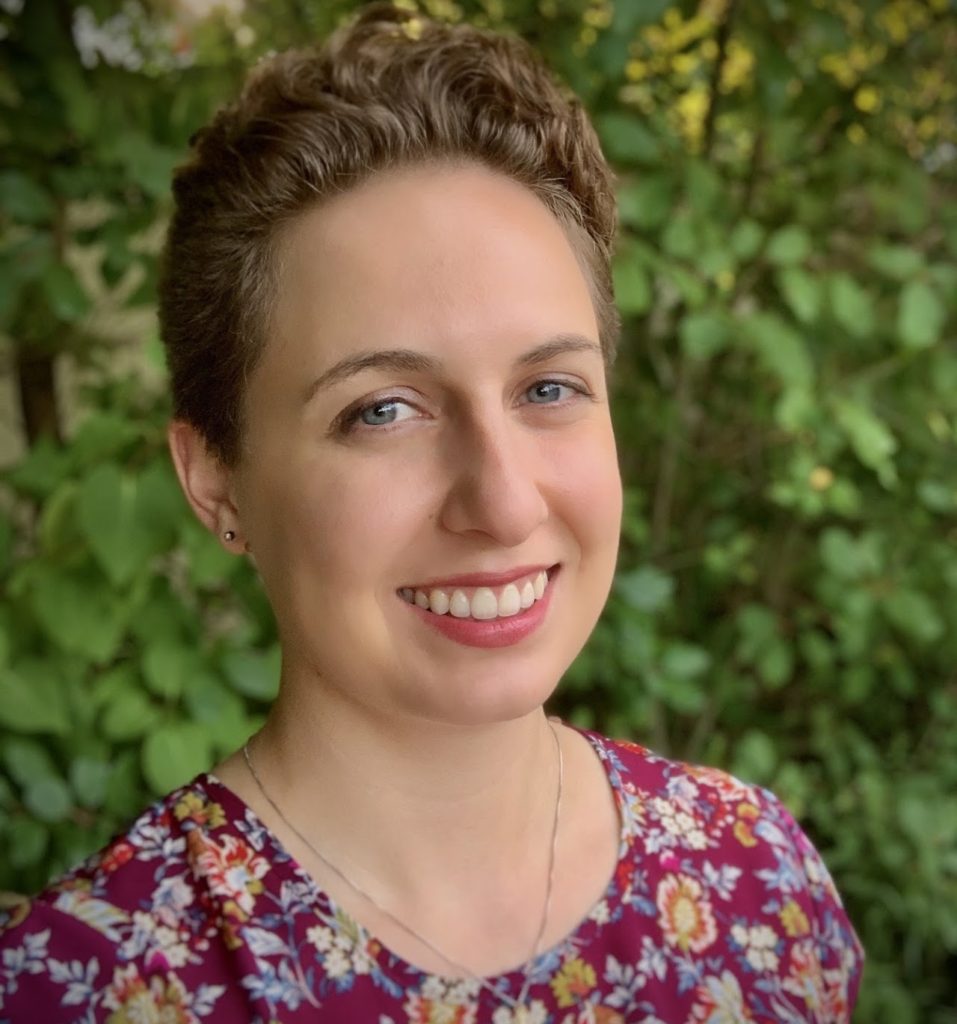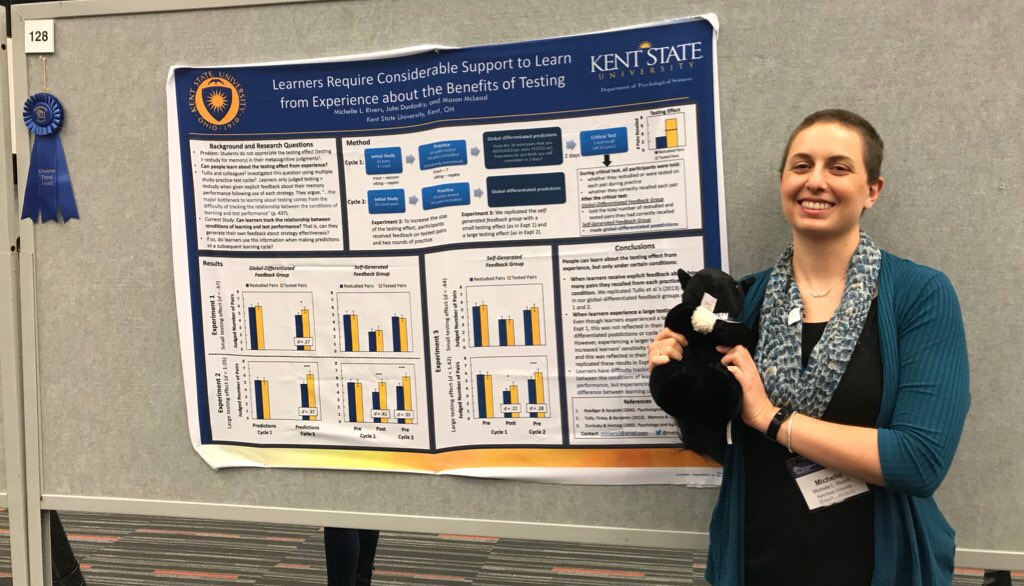With just 16 days until the 61st Annual Meeting of the Psychonomic Society, we are all brimming over with excitement and anticipation. If you haven’t registered for the conference yet, be sure to register before November 16, 2020. You do not want to miss all the exciting research that will be presented at this year’s virtual conference.
This year’s conference will bring together cognitive scientists from over 40 different countries around the world and researchers at all levels. The researchers range from distinguished professors to diligent graduate students. Through our “Inside the Scientist’s Lab” interview series, we have had the privilege of introducing a few of the Psychonomic Society’s creative and hard-working graduate students – our Twitternomes!
We look forward to reading their Twitter posts, keeping us all up to speed on what is taking place at the conference (follow us @Psychonomic_Soc and use the hashtag #psynom20).
Last week we heard from our Twitternome, Gia Macias, who is interested in cognitive factors that impact reading. Our next interview is with Michelle Rivers (pictured below), a fifth-year doctoral student at Kent State University (follow Michelle on Twitter @meta_michelle). Michelle is working with Dr. John Dunlosky (former Chair of the Psychonomic Society Governing Board) in the Metacognition and Education lab. (Plug: She is also on the market for a postdoc position!). This conference will be Michelle’s third year serving as a Twitternome!

Michelle’s research applies theories of learning and memory to enhance educational practice. She is particularly interested in investigating factors that contribute to students’ metacognitive judgments and how people manage their own learning. One of her ongoing research lines involves developing interventions aimed at improving students’ metacognitive awareness and regulation of retrieval practice.
Without further ado, we present our interview with Michelle Rivers.
How has your work life changed as a result of the pandemic?
The freedom of scheduling has allowed me to break up the workday into smaller chunks of a couple of hours at a time. I live near some beautiful walking paths in northeast Ohio (see the picture below), so I take advantage of opportunities to connect with nature and stretch my legs in the afternoons.

To maintain a writing routine and some semblance of normalcy, I have gotten in the habit of writing with a buddy via video chat. We keep our cameras on but muted while we work, and every so often, we’ll ask each other questions or just check-in. It helps to feel supported and less isolated.
Has the pandemic caused you to rethink your career path?
If anything, events this year have made me even more certain that I would like to work as an educator and continue investigating techniques to improve education. My research program is focused on techniques that improve learners’ ability to assess and manage their own learning – skills that are especially critical in remote learning environments.
I have also taken the time to consider how to contribute to improving our field. For example, I participated in the Society for the Improvement of Psychological Science meeting this summer, and I am currently fighting for graduate student voting rights within the American Psychological Association, which I believe will help attract, diversify, and support the next generation of students in psychology.
Has anything beneficial come out of the pandemic for you? Either for your research or personal life, or both?
About research, I am grateful for being forced to gain new skills in online data collection, remote collaboration, and virtual conferencing. This summer, I attended some online conferences that I normally wouldn’t be able to afford to attend on a graduate-student budget. Also, the normalization of video chat has made it easier to start new collaborations with colleagues who live outside of my geographical area.
Personally, I appreciate having time to cook nutritious meals and not having to meal prep for the work week! Every meal is fresh-cooked (although they are primarily stuffed quesadillas). One of the research projects I am helping with involves engaging families in STEM learning through food/cooking, so I’ve had to try different recipes at home to ensure they are sufficiently tasty. If you’re interested, some of the recipes are here.
What inspired you to get involved with the Psychonomic Society and serve as a Twitternome?
I attended my first Psychonomic Society meeting in 2014 in Long Beach, right after graduating with my undergraduate degree from UC Santa Cruz. I remember feeling galvanized by the many inspiring researchers in attendance, and it cemented my decision to pursue a graduate degree in cognitive psychology. I haven’t missed a meeting since, and it is gratifying to serve the Society, even in a small way.

Psychonomics typically has much more programming than any single person is able to attend, so I hope that the Twitter coverage alleviates some amount of conference FOMO. Plus, “Twitternoming” is fun! I enjoy the challenge of summarizing complex topics for a general audience, and I believe science should be accessible to all. To this end, I manage a blog, called cogbites.org, devoted to translating scientific research about the study of mental processes to a non-expert audience. Our team of authors – all students and early-career professionals (many of whom are Psychonomes) – are committed to describing not just what we know about cognition, but also how we came to know it.
What about the Annual Meeting are you most looking forward to?
The usual: connecting with colleagues and friends, hearing about the latest research, and the renewed feeling of invigoration following the conference. This year, I’m especially looking forward to working on embroidery or practicing yoga while listening to cutting-edge research talks.

Are you presenting at the Annual Meeting? If so, what’s the topic? What day and time?
Yes! I am presenting a poster entitled, “Are test-expectancy effects better explained by changes in encoding strategies or differential test experience?” (Abstract #3035, Sat 11/21 from 4-6 pm ET). I describe a set of experiments (recently published) that support the “encoding-strategy adaptation hypothesis.” In short, learners strategically adapt their encoding processes in anticipation of particular test formats.
Here is the abstract:
Are Test-Expectancy Effects Better Explained by Changes in Encoding Strategies or Differential Test Experience? MICHELLE RIVERS and JOHN DUNLOSKY, Kent State University
Prior research has investigated whether learners spontaneously adapt their encoding strategies in anticipation of particular test formats (i.e., the encoding strategy adaptation hypothesis; Finley & Benjamin, 2012). However, the strongest evidence supporting this hypothesis is confounded with test experience (Cho & Neely, 2017). When learners gain equal experience with each test format, do they adapt their encoding strategies? Participants studied lists of cue-target pairs and after each list completed either a cued-recall (recall targets given cues) or a free-recall (recall targets only) test. Participants received equal experience with each test format. On a final test, participants either received a test in a format they expected or one that violated their expectations. On this final test, participants who received a test they expected outperformed those who did not, and this was true for both cued and free recall. Also, a manipulation of cue-target associative strength had a greater effect on cued-recall tests than free-recall tests, whereas a manipulation of target-target associative strength had the opposite effect. These findings support the encoding strategy adaptation hypothesis.
